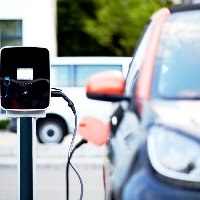(BRUSSELS) – As cheap, subsidised imports of Chinese electric cars surge into Europe, the EU Commission formally launched Wednesday an anti-subsidy investigation into imports of electric vehicles from China.
The probe will first determine whether BEV value chains in China benefit from illegal subsidisation and whether this subsidisation causes or threatens to cause economic injury to EU BEV producers.
Should both prove true, the EU executive says the investigation will examine the likely consequences and impact of measures on importers, users and consumers of battery electric vehicles in the EU.
“EU car manufacturers and related sectors are already investing and innovating to fully develop this potential,” said the Commission president Ursula von der Leyen: “Wherever we find evidence that their efforts are being impeded by market distortions and unfair competition, we will act decisively.”
Based on the investigation’s findings, the Commission will establish whether it is in the EU’s interest to remedy the effects of the unfair trade practices found by imposing anti-subsidy duties on imports of battery electric vehicles from China.
The investigation will follow strict legal procedures in line with EU and WTO rules, allowing all parties concerned, including the Chinese government and companies/exporters, to present their comments, evidence and arguments.
The Commission launched this investigation on its own initiative (ex officio), having gathered sufficient evidence that the recent surge in low-priced and subsidised imports of electric vehicles from China into the EU posed an economic threat to the EU’s electrical car industry.
While no formal complaint was received from EU industry to launch proceedings, the EU’s anti-subsidy rules stipulate that EU industry be requested to cooperate in the ex officio investigation.
As per legal requirements under EU and WTO rules, pre-initiation consultations were held with the Chinese government prior to the publication of the Notice of Initiation.



